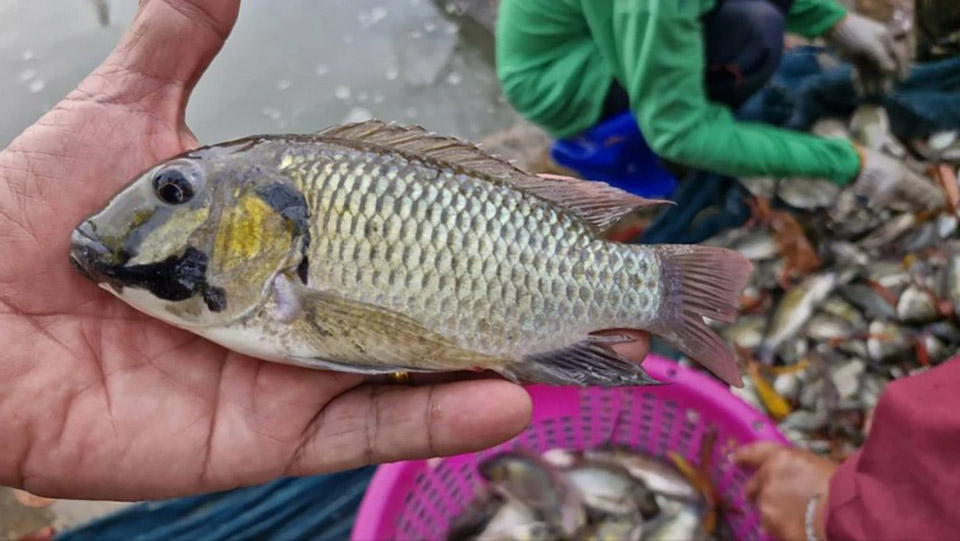
Bangkok Governor Chadchart Sittipunt visited Makkasan Pond to inspect the situation after a large number of blackchin tilapia fish were found floating.
Governor Chadchart revealed that water was drained to prepare for incoming rain to prevent flooding. The large number of fish was observed because they were gathering in the pond area where oxygenated water was expected.
Additionally, the treatment plant was repairing pumps from 3 AM to 11 PM, totaling 20 hours, which halted water discharge. Consequently, the fish congregated in the area with low water levels, leading to their death. Today, with the pumps functioning normally and water being discharged, the situation has improved, and the number of floating fish has decreased.
20% of the floating fish were blackchin tilapia, while 80% were Nile tilapia, highlighting the issue of the blackchin tilapia spreading into the heart of Bangkok.

According to the latest data from the Department of Fisheries, the blackchin fish (Sorotheodon Melanotheron), an invasive alien species, is currently spreading in 13 coastal provinces along the Gulf of Thailand.
This invasion is impacting the ecosystem and causing significant distress to local residents, as these fish prey on young fish, shrimp larvae, and shellfish, which are important fishing products. Additionally, they have entered farmers’ aquaculture ponds. The blackchin fish can survive in freshwater, saltwater, and brackish water environments and reproduce rapidly, producing over 500 offspring at a time.
In Thailand, the first outbreak of black chin tilapia was detected in Samut Songkhram province around 2012. Subsequently, a more widespread invasion was observed in 2016.
Captain Thammanat Prompao, Minister of Agriculture and Cooperatives, has elevated the issue of eradicating blackchin tilapia, an invasive alien species, to a national agenda due to the ongoing problem persisting for 14 years.

To address the spread of blackchin tilapia, the Ministry of Agriculture has tasked the Department of Fisheries with several measures: controlling and eradicating blackchin tilapia in all affected water bodies, releasing predator fish such as seabass and long-whiskered catfish to control blackchin tilapia in natural water sources, and utilizing the eradicated blackchin tilapia for food and animal feed.
One effective method to control the blackchin tilapia population, promoted by the Director-General of the Department of Fisheries, is encouraging the public to consume blackchin tilapia. (TNA)








